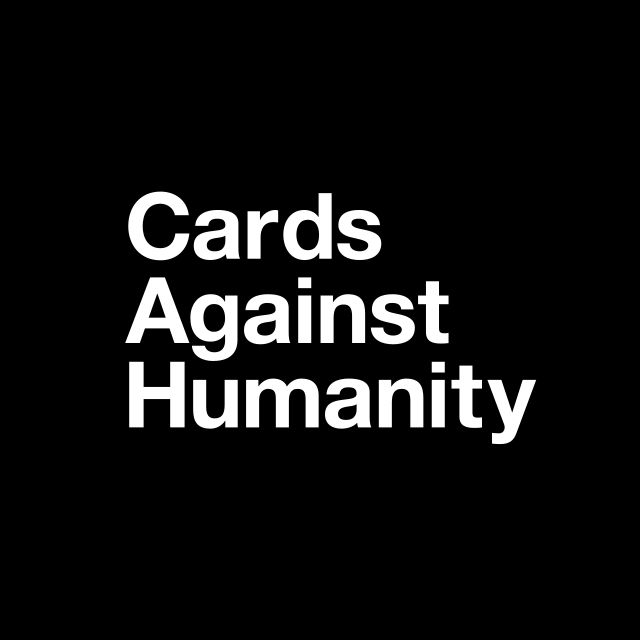Cards Against Humanity was created by a group of eight people: Josh Dillon, Daniel Dranove, Eli Halpern, Ben Hantoot, David Munk, David Pinsof, Max Temkin, and Eliot Weinstein. This game is a party game in which players complete fill-in-the-blank statements using a pre-written set of cards that contain themes of darker humor. Given its themes, the game is primarily targeted toward adults.
The basic gameplay goes as follows: going in a circle, each person takes turns being the judge. The judge picks a prompt from the top of the deck of prompt cards, which contain a fill-in-the-blank statement. The other players, who are given a hand of 7 cards to be used to fill in the blanks, place their card of choice face-down on the table. The judge then collects all the cards, reads the statement with the blank filled in with each of the cards, and picks the one that they think is the funniest. The person who put down the chosen cards wins that prompt card. The judge role then goes to the next person, everyone restores their hand back to 7 cards, and another round is played.
What I found to be interesting was the way winning in this game works. Typically, the way you win is to have the most amount of prompt cards in your possession, which makes this game a multilateral competition game. However, there is technically no official rule that dictates that this is the way in which you win, and there is no set number of rounds that the game requires you to play. When I played this game with a group of friends for this critical play, there was a ton of laughter shared between all of us in each round with all of the creatively raunchy cards that were played; but at the end of the game, when we simply decided that we had played for long enough, no one really cared about who had the most amount of judge cards, i.e. who “won” the game. I’ve played board games with this same group of people before, where things have gotten a little heated between the competitive people who really wanted to win. So the fact that no one really cared about who won when we played Cards Against Humanity was initially surprising, but it made me realize that that was the intention of the game: winning or losing is not the focus — what really makes this game fun is the creativity required that goes into coming up with the funniest statements possible, and the laughs shared when reading those statements out loud. In the end, it did make me feel even closer to this group of friends, which definitely fulfilled the fellowship type of fun that this social game surely aimed to create.



